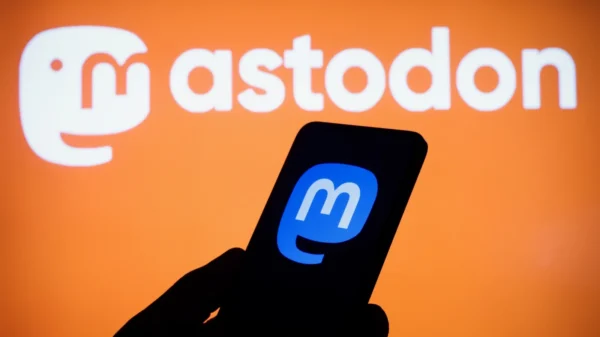Overview
Video games rely heavily on non-playable characters (NPCs), who form the core of the story and world-building of the game. NPCs, who can be anything from opponents and allies to shops and mission givers, are present in virtual environments and offer player interactions that enhance the overall gaming experience. Artificial intelligence (AI) has completely changed how non-player characters (NPCs) act, giving them a more realistic personality and improving the entire game experience. Gamers can experience more dynamic and immersive gaming with AI-driven NPCs because they can learn, adapt, and interact in ways that were previously unthinkable.
The Development of Video Game NPCs
Early Behavior of NPCs
NPC behavior was basic in the early days of video games. Characters frequently responded in a rigid manner and followed straightforward, pre-written scripts. Ghosts in old-school video games like “Pac-Man” followed predictable patterns, and non-player characters in role-playing games would always say the same thing to the player. Due to technology restrictions at the time, developers prioritized simple interactivity over complicated behavior, which resulted in these limitations.
Developments in NPC AI Over Time
NPC behavior became increasingly sophisticated as technology progressed. More sophisticated programming methods and more potent hardware made it possible to create NPCs with a wider range of interactions and behaviors. NPCs in video games like “The Sims” and “Grand Theft Auto” started to exhibit increasingly realistic behaviors and responses, giving gamers a more immersive and realistic experience. This evolution has been greatly aided by AI developments in fields like pathfinding, decision-making, and procedural creation.
Role-playing games
In traditional tabletop role-playing games such as Dungeons & Dragons, an NPC is a character portrayed by the gamemaster (GM).[2] While the player characters (PCs) form the narrative’s protagonists, non-player characters can be thought of as the “supporting cast” or “extras” of a roleplaying narrative. Non-player characters populate the fictional world of the game, and can fill any role not occupied by a player character. Non-player characters might be allies, bystanders or competitors to the PCs. NPCs can also be traders that trade currency for things such as equipment or gear. NPCs thus vary in their level of detail. Some may be only a brief description (“You see a man in a corner of the tavern”), while others may have complete game statistics and backstories.
There is some debate about how much work a gamemaster should put into an important NPC’s statistics; some players prefer to have every NPC completely defined with stats, skills, and gear, while others define only what is immediately necessary and fill in the rest as the game proceeds. There is also some debate regarding the importance of fully defined NPCs in any given role-playing game (RPG), but it is general consensus that the more “real” the NPCs feel, the more fun players will have interacting with them in character.
Playability
In some games and in some circumstances, a player who is without a player character can temporarily take control of an NPC. Reasons for this vary, but often arise from the player not maintaining a PC within the group and playing the NPC for a session or from the player’s PC being unable to act for some time (for example, because the PC is injured or in another location). Although these characters are still designed and normally controlled by the gamemaster, when players are given the opportunity to temporarily control these non-player characters, it gives them another perspective on the plot of the game. Some systems, such as Nobilis, encourage this in their rules.
Dependants
Many game systems have rules for characters sustaining positive allies in the form of NPC followers; hired hands, or other dependant stature to the PC. Characters may sometimes help in the design, recruitment, or development of NPCs.
In the Champions game (and related games using the Hero System), a character may have a DNPC, or “dependent non-player character”. This is a character controlled by the GM, but for which the player character is responsible in some way, and who may be put in harm’s way by the PC’s choices.
How AI Improves NPC Action
NPCs and Machine Learning
Creating intelligent NPCs has changed dramatically as a result of machine learning (ML). NPCs can pick up on player interactions through machine learning techniques and modify their behavior accordingly. The gaming experience is made more unique by this dynamic adjustment. In contemporary role-playing games, for instance, an NPC’s behavior toward the player may alter depending on prior interactions, giving the experience a more genuine and dynamic sense.
NLP: Natural Language Processing for Lifelike Conversations
NPCs may now comprehend and react to player inputs more naturally and human-like thanks to natural language processing, or NLP. Players and NPCs can have more complex and meaningful dialogue because to this technology. Thanks to advances in natural language processing, games such as “Mass Effect” and “The Witcher 3” feature integrated dialogue systems wherein the decisions made by the player impact the story. Further advancements in this field may result in even more complex dialogue systems, enabling players and NPCs to have unstructured talks.
Procedure for Creating NPCs
With procedural generation, content is produced algorithmically as opposed to by hand design. This method works very well for developing varied and distinctive NPCs. With procedural generation, game designers may add a vast array of characters to their game worlds, each with unique attributes and actions. Because of this variability, the game world is richer and offers players a more varied and unpredictable experience.
Sentiment and Emotion Analysis
Characters that are more emotionally responsive can be created by integrating sentiment analysis and emotion into NPC behavior. NPCs can display appropriate emotional responses, such happiness, rage, or melancholy, by examining the emotional context of player interactions. NPCs gain an additional degree of realism from this emotional depth, which enhances the plausibility and interest of interactions. For instance, depending on how the story is developing, NPCs in narrative-driven games may show outward symptoms of delight or despair.
Case Studies
“The Elder Scrolls V: Skyrim” is well-known for its large open environment and intricate NPC interactions. One of its most notable features is its NPC AI. The game develops a living environment with AI, with NPCs going about their daily lives, responding to player actions, and engaging in meaningful interactions with one another. The ability for NPCs to interact with one another, exchange goods, and even build relationships gives the game more complexity and realism.
Relationships between NPCs in “Red Dead Redemption 2”
The lifelike conduct of the NPCs in “Red Dead Redemption 2” has been praised. The game has a dynamic interaction system that allows NPCs to react to player actions by remembering them. For example, later in the game, the player may receive assistance in return if they assist an NPC. A more unified and immersive world where player choices have long-lasting effects is produced by this memory system.
“Left 4 Dead” uses an adaptive AI system called the “Director,” which modifies the game’s difficulty in real-time in response to the player’s actions. Enemy placement and behavior are regulated by this mechanism, which keeps the game interesting and tough. Adaptive AI has the potential to improve gameplay, as demonstrated by the Director’s capacity to generate a dynamic and surprising gaming experience based on player actions.
Enhanced NPC Behavior’s Advantages: Deeper Player Immersion
Improved NPC behavior makes the world more lively and believable, which greatly boosts player immersion. Players are more likely to feel a part of the story and a connection to the game world when non-player characters respond in realistic and varied ways. Sustaining the player’s delight and engagement requires this immersion.
AI-driven NPCs provide more intricate and branching storylines, which enhances dynamic storytelling. The actions and outcomes of NPCs can be significantly impacted by the decisions made by the player. Players will have a more meaningful and individualized gaming experience as a result of this dynamic storytelling technique, where they will feel that their choices actually count.
Enhanced Playability of the Games
AI-driven NPCs’ unpredictable and varied behavior makes games more replayable. Replays of the game allow for varied interactions and results, which keeps things interesting and fun. In open-world and role-playing games, where exploration and experimentation are essential elements of the gameplay experience, this replayability is especially beneficial.
Obstacles and Restrictions
Required Computational Power
The computational power needed to produce advanced NPC AI is one of the major obstacles. The computing power required by complex AI systems can be prohibitive for both gamers and developers. An recurring difficulty in the industry is striking a balance between the constraints of existing hardware and the demand for sophisticated AI.
Keeping Gameplay and AI Complexity in Check
Sometimes developing NPCs with sophisticated AI can result in unbalanced gameplay. NPCs that are very smart or sophisticated could overwhelm the player or throw off the desired balance of the game. AI systems must be thoughtfully created by developers to make sure that they improve gameplay overall rather than diminishing it.
Moral Aspects to Take into Account
Ethical issues arise when NPC AI becomes more sophisticated. The ramifications of designing realistic characters and the possibility of players developing emotional bonds must be taken into account by developers. Concerns exist over how violence and other delicate subjects involving NPCs are portrayed as well. It is imperative that these moral dilemmas be addressed in order to build games responsibly.
Prospects for NPC AI in Games in the Future
Exciting prospects lie ahead for NPC AI in games. Further developments in AI research may result in NPC interactions and behaviors that are much more complex. NPC design could undergo a revolution as a result of ideas like general AI, which can comprehend and carry out a broad range of duties and make them more intelligent and versatile than before.
Combining Augmented and Virtual Reality
Virtual and augmented reality (VR/AR) combined with NPC AI has the potential to produce very immersive gaming environments. Consider NPCs in a virtual reality setting that are able to identify and communicate with players, reacting to their voice orders and gestures in real time. This degree of immersion might make it harder to distinguish between the actual and virtual worlds, giving gamers a level of involvement never seen before.
Applications Across Industries
The development of NPC AI is not just for video games. These technologies may find use in simulation, training, and other sectors of the economy. AI-driven virtual characters, for instance, might be utilized to generate realistic training settings for military simulations or to offer individualized learning experiences in educational software.
FAQ:
Q: What is the primary advantage of AI behavior modification for NPCs?
A: The main advantage is that AI-driven NPCs can behave more dynamically and lifelike, which makes the game environment feel more authentic and increases user immersion.
Q: How does machine learning improve the behavior of NPCs?
A: A more tailored and captivating gaming experience can be achieved by enabling NPCs to learn from player interactions and modify their behavior accordingly through machine learning.
Q: What ethical issues are raised by sophisticated NPC AI?
A: The depiction of violence and delicate subjects, as well as the possibility of players developing strong emotional bonds with empathetic characters, are ethical considerations.
Q: Can AI-powered NPCs increase the replay value of a game?
A: Replayability can be increased by the unpredictable and variable nature of AI-driven NPCs, which might result in varied interactions and consequences in later playthroughs.
Q: What does NPC AI in games have in store for the future?
A: Future developments in AI research, VR/AR integration, and cross-industry applications in training and education are all possible.
Key Takeaway
- AI has greatly improved NPC behavior, giving characters a more engaging and realistic appearance.
- The main technologies advancing this field include emotion analysis, procedural generation, machine learning, and natural language processing.
- Improved player immersion, dynamic storytelling, and replayability are all correlated with better NPC behavior.
- Computational needs, striking a balance between AI complexity and gameplay, and ethical issues are some of the challenges.
- NPC AI in games has a bright future ahead of it, with possible breakthroughs and uses across numerous industries.
- The gaming industry can push the limits of interactive entertainment and give players everywhere richer, more immersive experiences by embracing these developments.












































